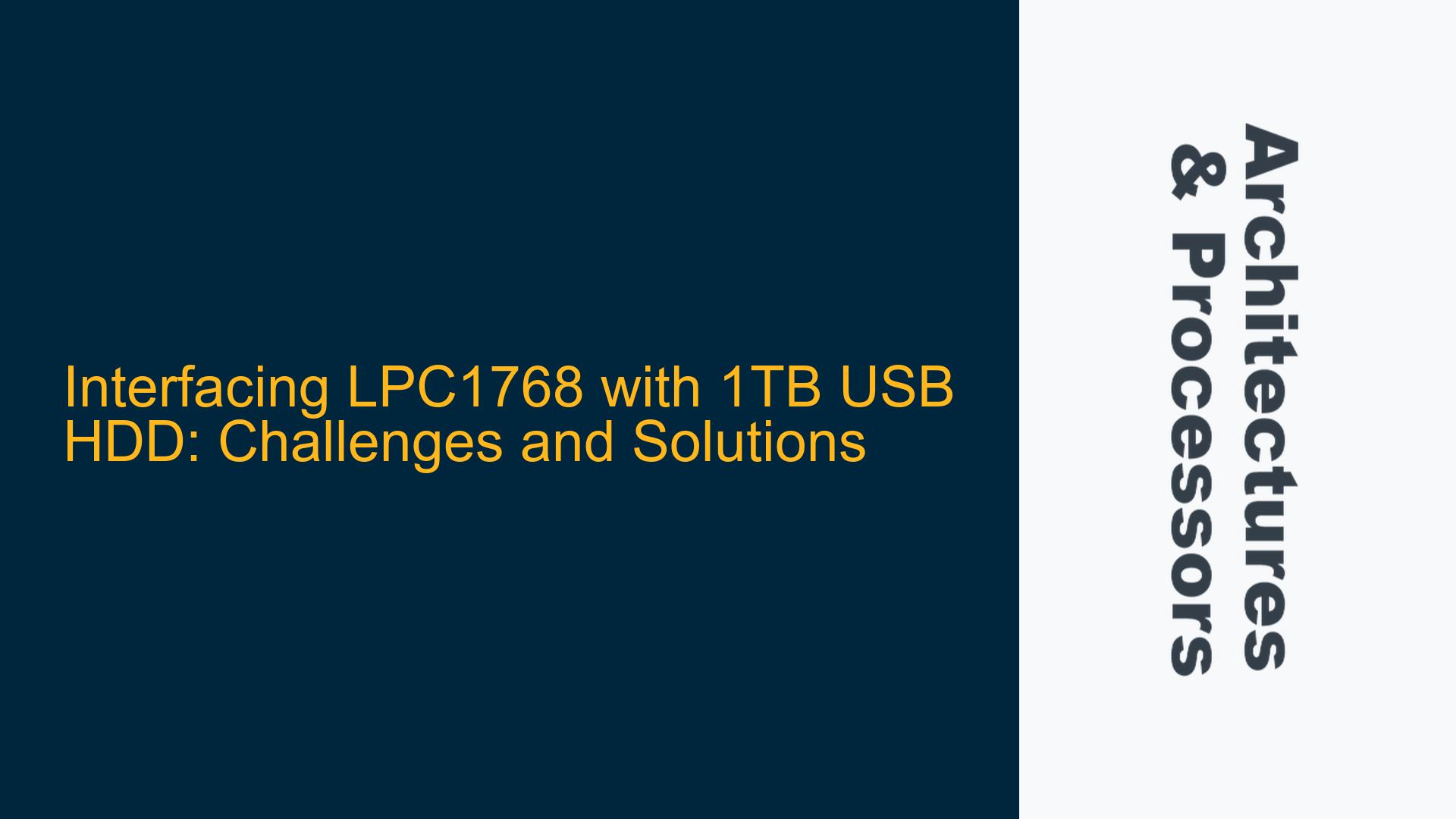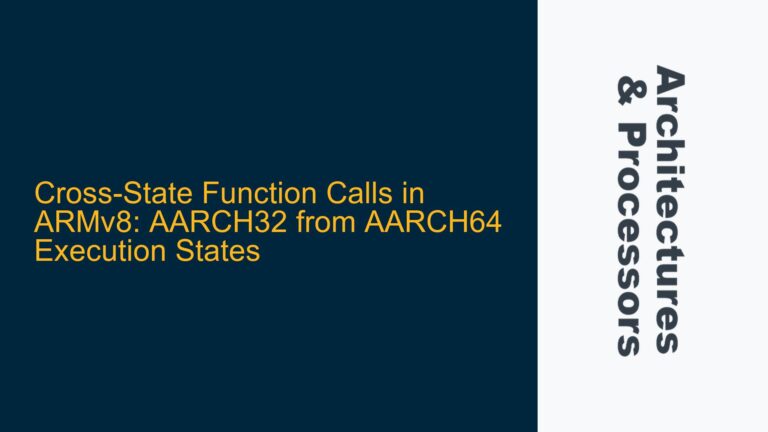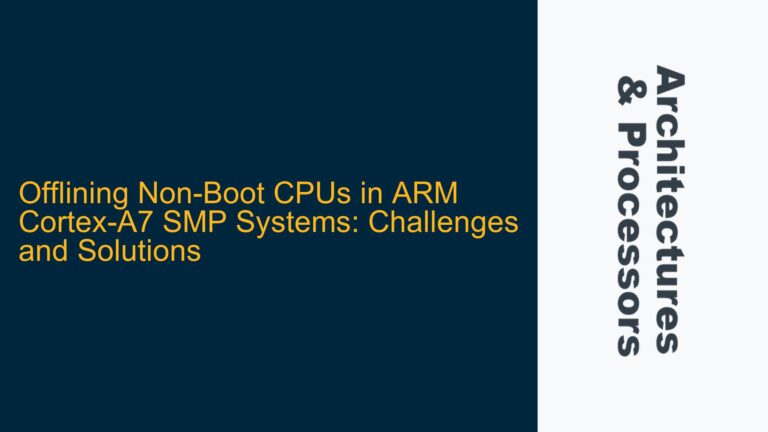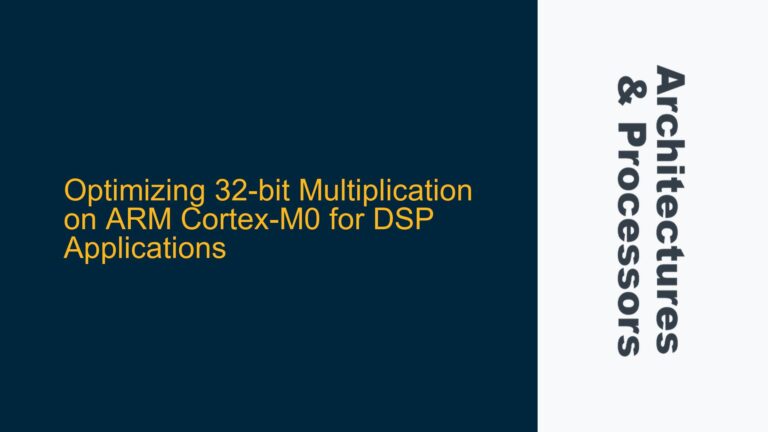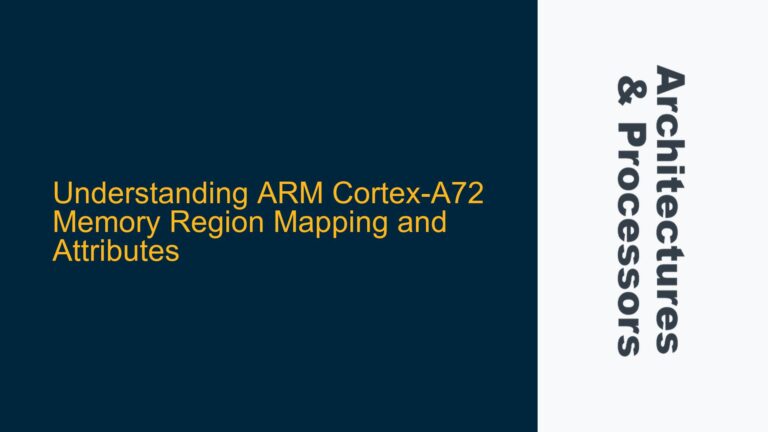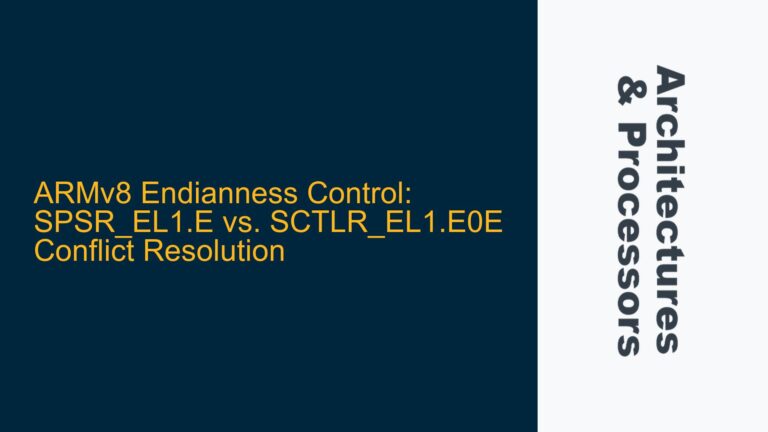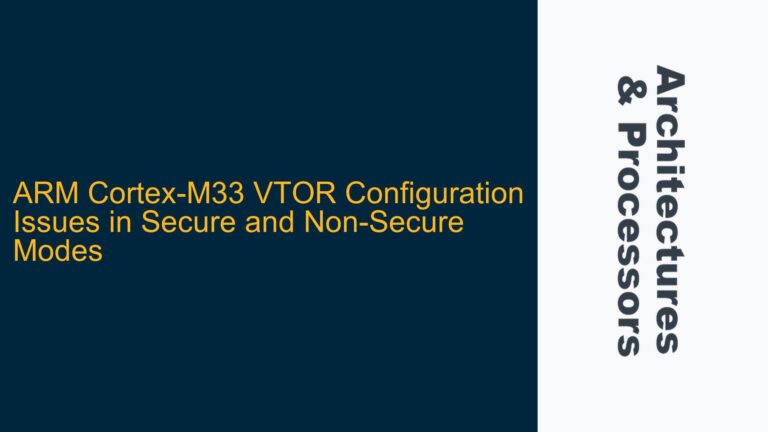LPC1768 USB Host Capability and FAT32 Limitations
The LPC1768 microcontroller, based on the ARM Cortex-M3 core, is a popular choice for embedded systems due to its robust peripheral set, including USB host capabilities. However, interfacing the LPC1768 with a 1TB external USB hard disk presents several challenges, particularly when dealing with the FAT32 file system. The LPC1768’s USB host controller can technically support USB mass storage devices, but the limitations of the FAT32 file system and the microcontroller’s resource constraints must be carefully considered.
FAT32, while widely used, has inherent limitations that become apparent when dealing with large storage devices. The file system’s maximum file size is 4GB, and the maximum volume size is theoretically 2TB, but practical limitations often reduce this. Additionally, FAT32’s performance degrades significantly with large directories and files, which can be problematic when dealing with a 1TB drive. The LPC1768’s limited RAM and processing power further exacerbate these issues, making efficient file system management crucial.
The LPC1768’s USB host controller must be configured correctly to handle the high data throughput required by a 1TB drive. This involves setting up the USB stack, managing USB transactions, and ensuring that the microcontroller can handle the data rate without dropping packets or causing buffer overflows. The USB stack must also be able to handle the various USB mass storage commands, such as SCSI commands, which are used to read and write data to the drive.
Memory Constraints and File System Alternatives
One of the primary challenges when interfacing the LPC1768 with a 1TB USB HDD is the microcontroller’s limited memory resources. The LPC1768 has only 64KB of RAM, which must be shared between the USB stack, file system, and application code. This limited memory can quickly become a bottleneck, especially when dealing with large files or directories.
To mitigate these memory constraints, developers can consider alternative file systems that are more suited to embedded systems with limited resources. One such alternative is exFAT, which is designed for flash memory and large storage devices. exFAT supports larger file sizes and volumes compared to FAT32 and has better performance characteristics. However, exFAT is a proprietary file system, and using it may require licensing fees, which could be a barrier for some projects.
Another alternative is to use a raw disk interface, bypassing the file system altogether. This approach allows the application to directly manage the storage device, but it requires significant development effort to implement the necessary data structures and algorithms for managing files and directories. This approach is only recommended for applications with very specific requirements, as it can be complex and error-prone.
In addition to file system alternatives, developers can also optimize the USB stack and file system implementation to reduce memory usage. This can involve using more efficient data structures, reducing buffer sizes, and implementing memory management techniques such as dynamic memory allocation or memory pooling. These optimizations can help to free up RAM for other tasks, but they require careful tuning to avoid introducing new issues such as fragmentation or increased processing overhead.
Implementing USB Mass Storage and File System Management
Implementing USB mass storage and file system management on the LPC1768 requires a thorough understanding of both the USB protocol and the chosen file system. The USB mass storage class (MSC) defines a set of commands and protocols for communicating with storage devices, and the LPC1768’s USB host controller must be configured to support these commands.
The first step in implementing USB mass storage is to initialize the USB host controller and configure it to communicate with the storage device. This involves setting up the necessary data structures, such as endpoint descriptors and transfer descriptors, and configuring the USB stack to handle the various USB transactions. The USB stack must also be able to handle errors and retries, as USB communication can be prone to errors due to noise or other factors.
Once the USB host controller is configured, the next step is to implement the file system management. This involves reading the file system’s metadata, such as the partition table and file allocation table (FAT), and using this information to locate and access files on the drive. The file system implementation must also handle file operations such as opening, reading, writing, and closing files, as well as managing directories and file attributes.
To optimize performance, developers can implement caching mechanisms to reduce the number of read and write operations to the storage device. For example, a read-ahead cache can be used to preload data from the drive into RAM, reducing the latency of subsequent read operations. Similarly, a write-back cache can be used to buffer write operations, allowing the application to continue executing while the data is written to the drive in the background.
In addition to caching, developers can also implement data compression or deduplication techniques to reduce the amount of data that needs to be stored on the drive. These techniques can help to maximize the available storage space and improve performance, but they require additional processing power and memory, which must be carefully balanced against the LPC1768’s limited resources.
Finally, developers must ensure that the USB stack and file system implementation are robust and reliable, as any errors or crashes can result in data loss or corruption. This involves thorough testing and validation, including stress testing to ensure that the system can handle high data throughput and large files without failing. Additionally, developers should implement error handling and recovery mechanisms to detect and correct errors, such as CRC checks and retries, to ensure data integrity.
Conclusion
Interfacing the LPC1768 with a 1TB USB HDD is a complex task that requires careful consideration of the microcontroller’s capabilities and limitations. The LPC1768’s USB host controller can support USB mass storage devices, but the limitations of the FAT32 file system and the microcontroller’s limited memory resources present significant challenges. By considering alternative file systems, optimizing the USB stack and file system implementation, and implementing robust error handling and recovery mechanisms, developers can successfully interface the LPC1768 with a 1TB USB HDD and achieve reliable and efficient operation.
